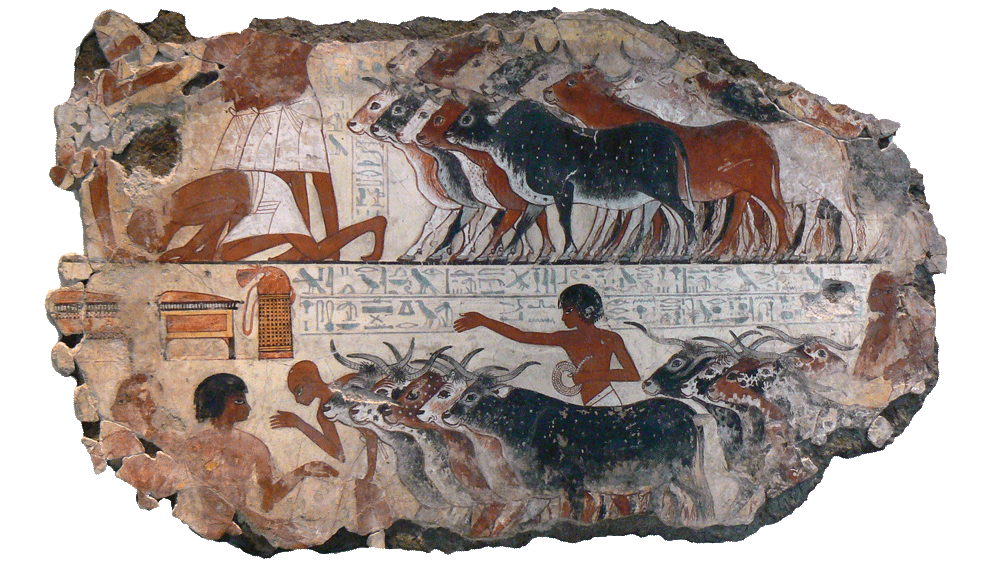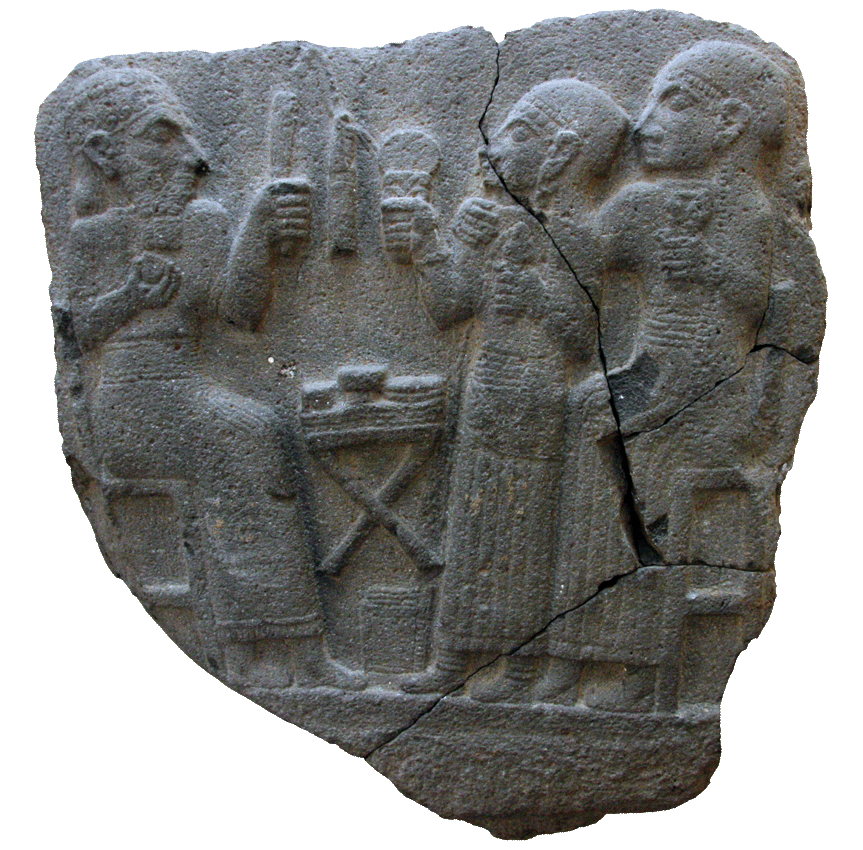Ecclesiastes
What Is the Meaning of Life?
Central Teaching
Meaning in life cannot be found through wisdom, wealth, or pleasure; meaning can only be found through serving God.
Memory Verse
Setting
The opening lines of Ecclesiastes identify the content of the book as “the words of the Teacher, son of David, king in Jerusalem” (1:1). Any of the kings descended from David could be called a “son of David,” so the identity of the actual author is not completely clear. Traditionally, many Christians have understood the author to be Solomon, putting the composition of the book around 900 BC.

“I also owned more herds and flocks than anyone in Jerusalem before me” (Eccles. 2:7). Depicted on this ancient Egyptian wall painting are herds of cattle.
Message
Ecclesiastes is one of the Wisdom books (Job, Proverbs, Ecclesiastes, and Song of Songs). Proverbs defines the normal function of wisdom—how to live wisely in the world. According to Proverbs the world is ordered and rational. Life makes sense and operates according to basic cause-and-effect relationships. Job, however, shatters the notion that the logical retribution-based world of Proverbs applies to all situations. Ecclesiastes is very similar to Job, underscoring the exceptions to the norms presented in Proverbs. When the “Teacher” in Ecclesiastes is intellectually and spiritually rattled by things that he sees in life that don’t match up to the ordered and logical world of Proverbs, he realizes that a rational and ordered approach to life does not give him a framework with which to grasp the ultimate meaning of life.

“A live dog is better off than a dead lion!” (Eccl. 9:4). Dogs were common in the ancient Near East. Depicted here is a terra-cotta statue of a dog from Cyprus (750–500 BC).
Ecclesiastes is a story about the Teacher’s intellectual search for meaning in life using the tools of wisdom (observation, reflection, correlation). Unfortunately, wisdom does not give him any satisfactory answers for ultimate meaning; it merely provides good intellectual tools with which to see the problems and inconsistencies in life. The Teacher wants to understand life and be able to come up with an overarching framework by which he can understand all of life, even the incongruities. His failure to do so is one of the main subpoints of the book (as it was for Job).
The final theological conclusion to Ecclesiastes and the main point of the book, however, is that one should “fear God and keep his commandments, for this is the duty of all mankind” (12:13). Wisdom is a good approach to life and is infinitely better than folly, but one cannot find meaning apart from acknowledging God as the ultimate Creator (12:1). Furthermore, Ecclesiastes suggests that life is not a mystery to be solved and understood but rather a gift to be enjoyed.
Outline
Interesting Features
- This book explores various unsuccessful avenues by which people try to find meaning (wealth, hard work, pleasure, understanding, etc.).
- The tone throughout most of Ecclesiastes is cynical and pessimistic.
- The Hebrew word translated as “meaningless” or “vanity” occurs thirty-eight times in Ecclesiastes.

A Hittite banquet scene (ninth century BC). Ecclesiastes 2:1–3 probably refers to party-like banquets.
Connections
Ecclesiastes tells us that we will not find meaning in life apart from serving God. Many people today try to find meaning through their work, their lifelong quest to accumulate wealth, or their pursuit of pleasure and/or happiness. As the Teacher in Ecclesiastes tells us, a life lived solely for these goals is meaningless and futile, like chasing after the wind. Regardless of how smart we are or how hard we work, it is only when we serve God that life takes on significant meaning.